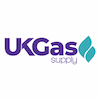Compare Business Energy Prices Today!
Did you know that many businesses across the UK are still overpaying for their business gas and electricity? Don’t continue to make the same mistake, compare prices for gas and electricity today to find competitive business energy prices and stop missing out on savings of up to 47%* on your energy bills.
To get started, call us on 0800 9777 000 or fill in the quote form above to see how much you could save…
*Average savings of 47% can be achieved when compared to your current energy supplier’s standard out-of-contract rates
Can you really save up to 47%* on your business energy bills?
The short answer is… Yes!
When you come to Exchange Utility to compare business gas and electricity, we will start searching for the right tariffs for your business. Due to our strong presence within the industry, we can find a great range of bespoke rates.
Comparing your business’s energy supplier can help to significantly reduce your energy overheads, should we find you a better tariff. Don’t miss out on our superb energy savings with our business switching services.
Simply fill in the form above or give our business energy experts a call on 0800 9777 000 to discuss your options.
How do I compare energy prices?
If you are looking to compare your business energy supplier to help reduce your business costs, choose Exchange Utility for the fastest switching service, friendly advice, and professional care.
We can help you to compare business gas and business electricity suppliers. Our energy supplier comparison experts will help you find a tailored solution by comparing a large range of suppliers in order to help you save money on your business bills.
We’ve helped thousands of businesses reduce their gas and electricity bills across the UK and we know we can help you to do the same, so get in touch with us today.
Our highly experienced business energy brokers can guide you through the somewhat daunting process of utility management and take the stress away from comparing all of the business energy suppliers in the market.
We understand today’s businesses have a wealth of options available for deciding who to turn to for managing their gas and electricity supplies. Having the choice of companies with competitive prices is a good thing, but it can seem like a challenge to carry out research and negotiate with these companies. Thankfully, Exchange Utility provide you with an impartial, personalised and professional service regardless of what size business you have.
We go the extra mile, leaving no stone unturned when it comes to helping businesses save money on their business utility bills.
How do business energy comparison sites benefit businesses?
It can often be a time-consuming process comparing energy suppliers, especially if you intend to approach multiple business energy suppliers directly for quotes. But you can save time by using a business energy comparison site such as Exchange Utility to compare a whole range of suppliers, simplifying the process and saving yourself a lot of time in the process.
✔ Save money: No matter how determined somebody was to find the best deals on their own. A business energy comparison site can request many more quotes from multiple energy suppliers in less time, allowing you to focus on your own day-to-day job. By comparing quotes from different suppliers, you can find the right deal for your business, helping you to potentially save hundreds or even thousands of pounds each year.
✔ Convenience: Instead of filling in multiple forms, or calling multiple energy suppliers. You only need to deal with one business energy comparison site, making it easier to compare quotes from different suppliers in one place. This is far more convenient, especially if you’re short on time or don’t have the expertise to compare quotes yourself.
✔ Transparency: By choosing to find a new supply by using a business energy comparison site, they can help you to better understand the energy market and the different options available to you. This can help you make more informed decisions when choosing your next energy supplier and save money in the long run.
✔ Peace of mind: Using a business energy comparison site can give you peace of mind knowing that you’re getting the right deal for your business. You can also be confident that you’re switching to a reputable supplier with a good track record.
So in order to save time and effort searching for new business energy quotes for your business, consider using Exchange Utility’s energy price comparison services to find the best quotes from up to 22 of the leading business energy suppliers in the UK. Unlike some other companies, we offer an independent service, meaning you can be sure that we’ll provide you with a range of business energy quotes for your business, allowing you to choose the one that best suits your business’s requirements.
How long does it take for businesses to switch providers?
If you choose to let our energy experts here at Exchange Utility help you switch business energy suppliers, we will endeavour to help you switch your supplier as soon as possible. The team will handle the whole switching process for you from start to finish. So you have nothing to worry about throughout the whole process.
Most business energy switches will take a little longer, often between 2 weeks and 4 weeks*, once they are out of contract and free to switch suppliers, though we aim to have your tariff switched within 5 days.
The length of time it takes to switch can vary depending on a number of factors, including:
- Research and Comparison: If you haven’t found a new supplier yet, the time you spend researching and comparing energy suppliers will add to the time taken to switch. Using a company such as Exchange Utility can help you find a new business energy supplier quicker.
- Whether your current contract has ended: If you’re still under contract with your existing energy supplier, you should check when your existing contract comes to an end. You can usually begin searching for a new energy supplier up to 3 months before your contract ends. This will enable you to switch once your contract has expired.
- Notice period and termination: You will need to check your existing contract to see what notice period you need to give to your existing supplier. This will be needed to inform your new energy supply of when they can take over your energy supply and prevent any unnecessary delays.
- Negotiations and contracts: Once you’ve found a supplier you’re happy with, you should spend some time going through the terms of the contract to ensure you’re happy with what you’re agreeing to. You’ll also need to let your new supplier know when you need your switch to be completed.
- Switching process and activation: The actual switching process usually takes around 2 to 4 weeks to complete*. This gives your new provider time to handle any administrative tasks, such as setting up the account and coordinating with your old provider. Once the switch is complete, you will receive a confirmation from the new provider and start receiving energy from the new supplier.
Here are some tips to help you speed up the switching process for your business:
✔ Start the process early: The earlier you start the process, the more likely it is that your switch will be completed on time.
✔ Gather all the necessary information: You’ll need to provide your new supplier with some basic information about your business, such as your account number and meter readings.
✔ Be clear about your expectations: Let your new supplier know when you would like your switch to be completed.
✔ Be patient: The switch process can take a few weeks to complete, so be patient and don’t panic if it takes a little longer than expected.
You can learn more about the switching process by reading our energy switching FAQ for further details.
As one of the largest energy consultancies in the UK, we have access to a number of business energy suppliers, from the Big 6, independent suppliers, to suppliers that are very green energy focused all of which will provide you rates depending on your business.
*There is no guarantee that every business’s energy switch will be completed within 2 to 4 weeks. This is based on the average time for the majority of businesses to switch their energy suppliers.
Has your business recently moved into new premises?
If your business has recently or intends to move into new premises and begins to use gas and/or electricity, the existing supplier could potentially place you onto a “deemed contract”. This can often mean you won’t be getting the supplier’s most competitive prices for your energy, so you should look to change your tariff as soon as you have moved into the new premises and accepted responsibility for paying the energy bills.
You can then switch energy suppliers in much the same way as if you’d take out the previous energy contract yourself and not inherit it from the previous owners of the business premises.
What can you do if you’re on an “out of contract rate”?
According to Ofgem, your supplier must take all reasonable steps to ensure you are aware of any other contracts available to your business through your current supplier. They must give you reasonable advanced notice of the end date of your contract and inform you what will happen in due course.
Although these offers may help your business save money, they’re often not the most competitive deals in the market, but they will be a better alternative to the energy prices you’re currently paying.
Is switching energy suppliers difficult to do?
Your current supplier should not make it difficult for you to change suppliers once you are out of contract. They are also obligated to let you know prior to the end of your contract when your contract will end and what will happen after the end of your contract. If you plan to switch suppliers, read your current energy contract thoroughly to ensure that your current supplier’s contract isn’t a “roll-over contract”.
If you need help and advice with understanding your current contract and would like to explore your options by comparing a range of business energy suppliers, our friendly team of knowledgeable business energy brokers will be able to guide you through the options available to you. Simply call our business energy experts on 0800 9777 000 or fill in the form above and we can help and advise you on your possible options.
Microbusiness energy contracts
If your business is considered to be a micro business, energy suppliers are required to put the end date and notice period on all bills for fixed-term contracts. We have more information in our fixed-term energy tariffs guide if you would like to learn more about this.
Ofgem also requires all smaller businesses to notify their suppliers of their intention to switch at the end of their current contract, any time before the notice period. It’s always advisable to be proactive and check what your current supplier will do with your contract and billing after your contract end date, as the most competitive options are often found when comparing suppliers. We also have a guide on Ofgem, explaining a little more about what it is and what it does.
For contracts which started on or after 30 April 2015, Ofgem has reduced the maximum notice period for terminating a micro business contract from 90 to 30 days. Smaller businesses are also required to be notified by their current energy supplier around 60 days before a fixed-term ends how much energy they use each year and provide them with details on how the price of their current contract compares with the new prices. If you’re a small business owner and are looking to see what is the best option for your business, take a look at our small business energy guide.
With this information available, it should make it easier for you to be able to compare utility bills and prices provided by other suppliers when the current contract ends. Our expert energy brokers at Exchange Utility can help you by comparing the suppliers we work with to find you a better plan by either calling us on 0800 9777 000 or by filling in the form above.
Still unsure if switching is right for your business?
It’s understandable to be sceptical about being able to make such savings, but the reality is that these savings are very possible if you have been with the same supplier for an extended period of time. Your old contract rates may no longer be available and you may have been moved on to an “out of contract rate” which could mean you will no longer be getting the most competitive rates for your business.
With that in mind, do not wait until your contract end date to start looking. Ensure you’re well prepared and start the process of comparing energy providers if you would like to ensure your business will not be locked into paying more for your gas and/or electricity.
Compare your business energy today
To get started and enable us to prepare an accurate comparison for you, we will need some information from your utility bill. This will be your meter number, bill period, payment amount and tariff information. Not sure where to get this information or have any further queries? Give us a call today and we will provide you with the very best business energy advice and cost-effective solutions.
To get started, call us on 0800 9777 000 or fill in the quote form above to see how much you could save…
Key terms used in energy contracts and what they mean
Below, you will find some of the key terms used when talking about your energy contracts to help you better understand more about your energy contracts and energy bills.
Key terms quick links
Charges
The amount you are billed daily or monthly by your gas and/or electricity supplier for maintenance and other costs, such as maintaining connections to the power and/or gas networks.
Cooling-off period
When you switch to a domestic energy supplier, you receive a cooling-off period which allows you to change your mind about switching suppliers without penalties. However, the same does not always apply to a business energy contract as the rules for businesses and domestics are different. Therefore, you should always attempt to find a suitable deal before the end of your current contract to ensure you are getting the right gas and electricity deal.
To speak to our expert business energy brokers about your options, call us today on 0800 9777 000 or fill in the form above.
Cubic feet (ft³)
This is the unit of measurement commonly used to quantify the volume of natural gas consumption. It represents the amount of space occupied by the gas.
Deemed contract / Out of contract rate
If you have recently moved into a new business premises without agreeing to a contract with a supplier, you may be on what is known as a “deemed contract” for your gas and/or electricity supply. This means that you are on an “out of contract rate” and may not be getting the best deal, so it would be advisable to seek out a new supplier.
Fixed price
Your energy supplier will charge you a fixed price per kWh for your gas and/or electricity which will not change for the set period of time set out in your contract(s).
Fixed term tariff
If your supplier has provided you with a fixed-term tariff, this will have a fixed end date which you should be made aware of before agreeing to the energy contract. Details of any fixed-term tariff your business energy is on should be outlined within your contract.
Green tariff
Some suppliers are now able to offer businesses a more environmentally friendly energy supply by providing electricity and gas from renewable or carbon-neutral sources. These tariffs are known as green tariffs allowing businesses to further improve their own green credentials and environmental impact.
kWh
kWh stands for “kilowatt-hour” and it is a unit of energy commonly used to measure electricity consumption. It is a product of the power rating in kilowatts (kW) multiplied by the time in hours (h) that the power is used. Electricity bills often list energy consumption in kilowatt-hours, and it is an essential unit for understanding and managing electricity usage in residential, commercial, and industrial settings.
Meter reading
Whether your business uses electricity or gas, you will be supplied with a meter in order to determine how much gas and/or electricity your business is using.
A meter reading will allow the energy supplier to determine how much your business has consumed and accurately bill you for your current usage.
Micro business consumers
A micro business is a non-domestic consumer and is defined as one that meets one of the following;
✔ A business that employs fewer than 10 employees
✔ An annual turnover or balance sheet no greater than 2 million euros
✔ Uses no more than 100,000 kWh of electricity per year
✔ Uses no more than 293,000 kWh of gas per year
According to Government statistics, as of January 2024 there were 5.5 million small or medium sized businesses (SMEs) employing 250 or fewer staff accounting and a further 8000 are considered large businesses, employing over 8000 staff.
Here at Exchange Utility, we help businesses of all sizes to ensure you’re receiving the right deal from our panel of suppliers. Call our expert business energy brokers on 0800 9777 000 or fill in the form above to get started.
MWh
A megawatt-hour is a unit of measurement which is equal to 1000 kWh
MWh stands for “megawatt-hour”, which is a unit of energy commonly used to measure large amounts of electrical energy consumption or production. One megawatt-hour is equal to one million watt-hours, and it represents the amount of energy consumed or produced by a 1-megawatt device operating for one hour. It’s a standard unit used in the energy industry to quantify electricity generation, consumption, or transmission. For even larger amounts of energy, gigawatt-hours (GWh) and terawatt-hours (TWh) are used.
Smart meter
The government updated the smart meter rollout with new minimum annual installation targets for energy suppliers which were introduced at the beginning of 2022. This Targets Framework will be in place until the end of 2025 when it is expected to be reviewed and extended until 2028
One of the main differences between one of the older, traditional energy meters and a smart meter is in how the meter is automatically read by the companies, without the need to submit readings. Smart meters, unlike the older, traditional meters will communicate directly with your supplier in near real-time. This should mean you’re only ever going to be billed and pay for the energy you use and cut down on meter reading submission errors.
Older meters rely on one of three methods; an estimated reading, a customer’s reading or somebody physically visiting your premises to read the meter.
Standing charge
Along with the unit price you pay on the amount of energy your business consumes, you will also be billed a standing charge. This is a fixed daily or monthly amount that you pay your gas and/or electricity supplier for maintenance and other costs, such as maintaining your connection to the gas and/or power network.
The ‘Big Six’ Energy Companies
The Big Six is a term widely used to describe the biggest UK energy companies supplying gas and electricity to domestic and business customers. Historically, the ‘Big Six’ energy companies in the UK were commonly identified as follows; British Gas, EDF Energy, E.ON Next, Npower, Scottish Power and SSE with many other energy companies in the UK making up the rest.
See who the current “Big Six” energy companies are and learn more about who they are and whether you should consider using them when searching for a new business energy supplier.
Unit rate
A unit rate is the contractual amount being charged per unit of gas and/or electricity being consumed according to the gas and/or electricity meter.
Why use Exchange Utility to compare business energy online?
✔ Our expert team of business energy brokers is one of the best in the industry
✔ The process of switching to a new business energy tariff can take as little as 5 days
✔ We have years of experience helping businesses just like yours to switch gas and electricity
✔ We can save you time by comparing a range of gas and electricity suppliers on your behalf
✔ We compare electricity and gas prices from industry leaders to find the right rates for your business
✔ We have built a solid reputation for being a reliable, independent and trustworthy comparison company
✔ Don’t just take our word for it see what our customers are saying about us on Trustpilot
To get started, call us on 0800 9777 000 or fill in the quote form above to see how much you could save…
























